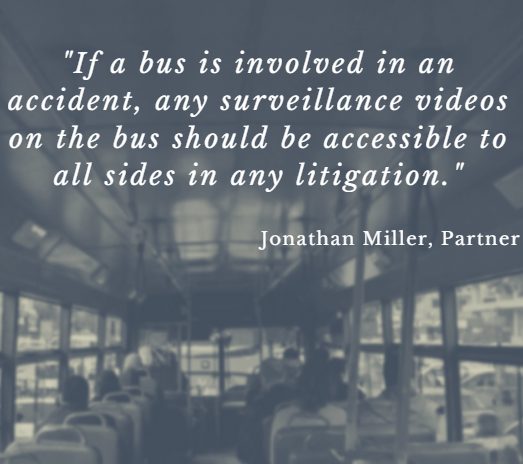Surveillance videos can make or break a case. The Pennsylvania Supreme Court issued an important opinion on access to police dash-cam videos, or motor vehicle recordings (MVRs), on June 20, 2017 in Pennsylvania State Police v. Grove, 161 A.3d 877 (Pa., 2017). Grove was the subject of a prior blog. Since Grove, there have been a new statute and a new case that are both important.
On July 7, 2017, the Legislature passed 42 Pa.C.S.A. § 67A03, Requests for law enforcement audio recordings or video recordings. Section 67A03 became effective on September 5, 2017. Section 67A03 does not amend the substantive law regarding when these recordings must be produced. It sets forth procedural conditions that a person who requests the recordings from a law enforcement agency must follow.
There are four conditions in Section 67A03. First, the requester must serve a written request within 60 days of when the recording was made. Second, the request must “specify with particularity the incident or event…including the date, time and location….” Third, the request must include the requester’s relation to the incident or event in the recording. Fourth, if the incident or event occurred inside a residence, “the request shall identify each individual who was present at the time of the [recording]… unless not known and not reasonably ascertainable.”
On September 12, 2017, the Commonwealth Court decided Port Authority of Allegheny County v. Towne, 2017 WL 3994757 (Comwlth. Ct., 2017). Two vehicles collided when one sought to avoid a collision with a Port Authority bus. The bus had seven camera angles. One of the vehicle drivers wanted to see the bus video. The Port Authority showed him the video. He was not satisfied, so he filed a request under the Right-to-Know Law (RTKL). He made bad law.
Looking at the specific facts of the case, and in particular at three affidavits from the Port Authority, the Court held that the videos were exempt from disclosure under the RTKL because they were investigative materials relating to a non-criminal investigation.
We have a lot trouble with Towne on a basic fairness level. If a bus is involved in an accident, any surveillance videos on the bus should be accessible to all sides in any litigation. We hope that Towne will be reviewed and reversed by the Pennsylvania Supreme Court. Until that happens, counsel should attempt to distinguish their situations from the very particular affidavits described in Towne.








